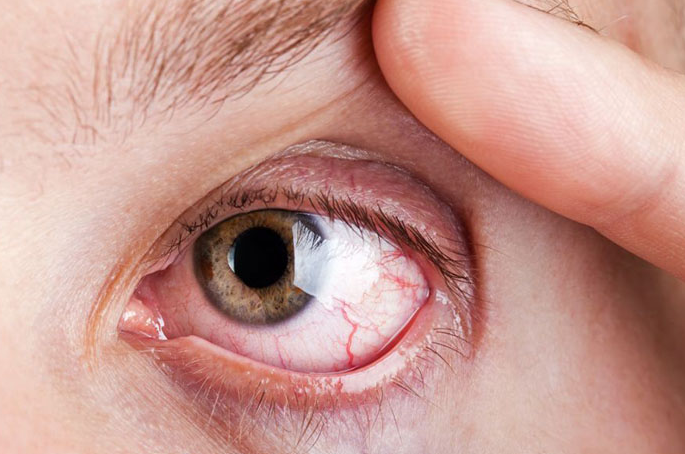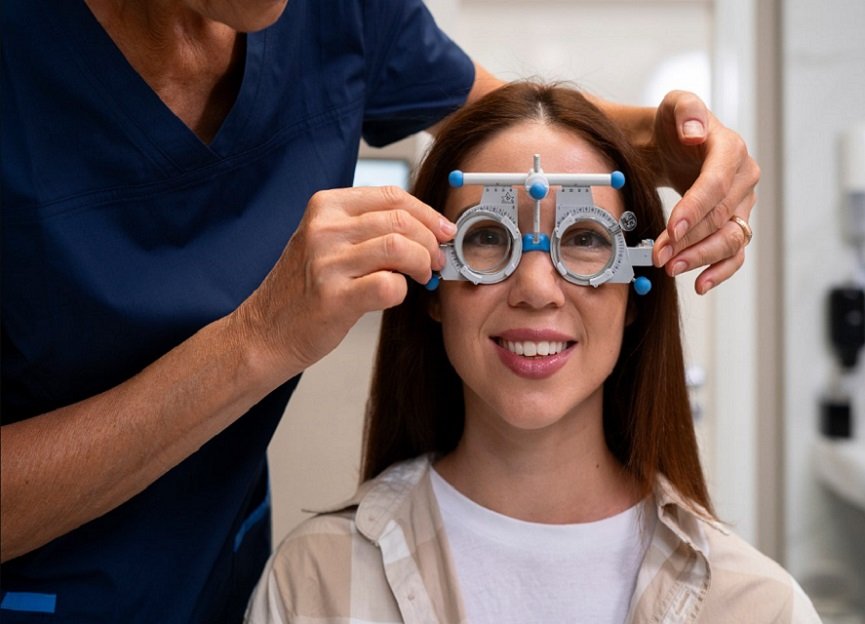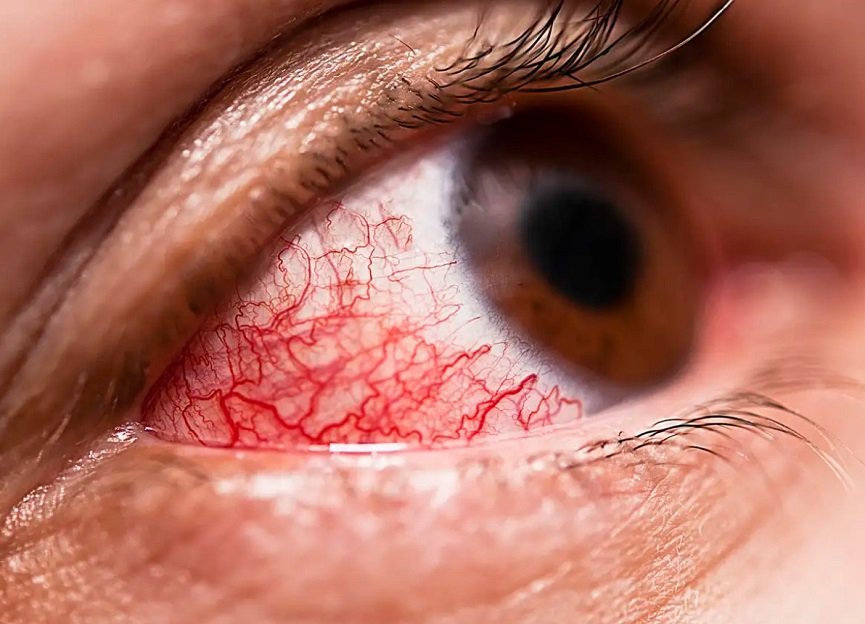
Diabetic retinopathy is a leading cause of blindness among adults, yet many remain unaware of its implications until it's too late. As diabetes continues to rise globally, understanding this eye condition becomes crucial for everyone living with the disease. If you're in Mansarovar Park East Delhi and concerned about your vision, knowing your treatment options can empower you to take charge of your eye health.
In this post, we'll explore what diabetic retinopathy is, delve into its causes and risk factors, and highlight top diabetic retinopathy treatment options that are available right here in your neighborhood. Whether you're seeking information on traditional methods or cutting-edge therapies like anti-VEGF injections, we've got you covered. Let's ensure that good vision remains within reach!
Understanding Diabetic Retinopathy
Diabetic retinopathy is a serious eye condition that affects individuals with diabetes. It occurs when high blood sugar levels damage the tiny blood vessels in the retina, leading to vision problems.
Initially, symptoms may be subtle or even nonexistent. As the disease progresses, patients might experience blurred vision, dark spots, or difficulties seeing at night.
There are two primary stages: non-proliferative and proliferative diabetic retinopathy. In the non-proliferative stage, damaged vessels leak fluid into the retina. The proliferative stage involves new abnormal blood vessel growth that can cause severe complications.
Understanding this condition is vital for early detection and effective management. Regular check-ups play a key role in monitoring changes in your eyes as well as adjusting your treatment plan accordingly.
Causes and Risk Factors
Diabetic retinopathy primarily stems from prolonged high blood sugar levels. When diabetes is not well-managed, it can lead to damage in the blood vessels of the retina.
Several risk factors contribute to its onset. Duration of diabetes plays a significant role; the longer someone has diabetes, the higher their risk becomes. Poorly controlled blood pressure and cholesterol levels also heighten susceptibility.
Age is another important factor; older adults with diabetes are at increased risk for developing this condition. Additionally, pregnancy can exacerbate existing diabetic retinopathy or accelerate progression.
Lifestyle choices cannot be overlooked either. Smoking and obesity further complicate glucose management, which may trigger retinal changes over time.
Understanding these causes helps in taking proactive steps toward prevention and effective diabetic retinopathy management in Mansarovar Park East Delhi.
Traditional Treatment Options
Traditional treatment options for diabetic retinopathy often begin with careful monitoring. Regular eye examinations play a crucial role in identifying the condition early. These check-ups allow doctors to track any changes in vision and retinal health.
For patients experiencing mild symptoms, lifestyle changes are recommended first. Controlling blood sugar levels through diet and exercise can significantly slow down disease progression.
In cases of moderate to severe diabetic retinopathy, laser therapy is frequently employed as an effective solution. This method targets damaged areas of the retina, helping to seal leaking blood vessels or reduce abnormal growth.
Another approach involves vitrectomy surgery, which removes blood from the vitreous gel when it becomes cloudy due to bleeding caused by retinopathy. Though more invasive than other treatments, it can restore vision in certain patients.
These traditional methods provide a foundation for managing diabetic retinopathy effectively while paving the way for newer innovations in care.
Laser Treatment for Diabetic Retinopathy
Laser treatment is a cornerstone in managing diabetic retinopathy. This advanced procedure aims to preserve vision by targeting damaged blood vessels in the retina.
During the process, a focused beam of light is directed toward specific areas. The laser seals leaking vessels and reduces swelling. It can effectively prevent further vision loss.
There are two main types: focal and scatter laser treatments. Focal therapy targets specific problem areas, whereas scatter treatment addresses multiple regions affected by damage.
Patients often experience minimal discomfort, making it an appealing option for many. Recovery time is usually brief, with most returning to daily activities quickly.
The success of laser treatment depends on early detection and timely intervention. Regular check-ups are crucial for anyone at risk or experiencing symptoms of diabetic retinopathy.
Intraocular Steroid Injections
Intraocular steroid injections are a powerful option for managing diabetic retinopathy. They work by reducing inflammation within the eye, which can help prevent vision loss. This treatment is particularly beneficial in cases where swelling occurs in the retina due to diabetes.
Administering these injections involves using a fine needle to deliver steroids directly into the vitreous, the gel-like substance inside your eye. The procedure usually takes only a few minutes and may cause mild discomfort.
Patients often notice improvements in their vision after receiving this treatment. However, it’s essential to monitor for potential side effects such as increased intraocular pressure or cataracts over time.
Regular follow-ups with your eye care specialist will ensure that you receive comprehensive support tailored to your needs. Intraocular steroid injections represent an important part of diabetic retinopathy management strategies available at AIY Eye Care in Mansarovar Park East Delhi.
Anti-VEGF Injections
Anti-VEGF injections have emerged as a pivotal treatment for diabetic retinopathy. They specifically target vascular endothelial growth factor, a protein that contributes to abnormal blood vessel formation in the retina.
When these vessels grow uncontrollably, they can leak fluid and cause vision problems. By inhibiting VEGF, these injections help stabilize or even improve eyesight for many patients.
Administered directly into the eye, Anti-VEGF treatments are typically given on an outpatient basis. The process is quick, often allowing individuals to return to their daily activities shortly after administration.
Patients may require multiple sessions over time to maintain optimal results. Regular follow-up appointments ensure healthcare providers monitor progress effectively and adjust treatments if necessary.
This innovative therapy has become integral in diabetic retinopathy management in Mansarovar Park East Delhi. Patients seeking the best diabetic eye care treatments can find hope in this advanced approach at AIY Eye Care.
New and Emerging Treatments
The landscape of diabetic retinopathy treatment is rapidly evolving. Researchers are constantly exploring innovative approaches to improve patient outcomes.
One promising area involves gene therapy. This technique aims to address the underlying causes of diabetic retinopathy by altering genes responsible for disease progression. Early studies show potential in stabilizing vision and reducing the need for invasive procedures.
Another avenue is the use of sustained-release drug delivery systems. These devices can provide continuous medication over extended periods, minimizing the frequency of injections required for conditions like macular edema related to diabetes.
Additionally, stem cell therapy is gaining traction as a future solution. This approach seeks to regenerate damaged retinal tissues and restore function effectively.
As these new treatments undergo clinical trials, they hold promise for more effective management strategies tailored specifically for individuals suffering from diabetic retinopathy in Mansarovar Park East Delhi.
Importance of Regular Eye Exams
Regular eye exams are essential for anyone, especially those with diabetes. Diabetic retinopathy can progress without noticeable symptoms until significant damage occurs.
Routine check-ups help detect early signs of retinal changes. This early intervention is crucial in managing the condition effectively. Eye care professionals use specialized equipment to monitor your retina's health accurately.
Moreover, these exams provide an opportunity to assess overall eye health and adapt treatment plans as needed. Regular visits also allow for discussions about lifestyle changes that may benefit eye health and reduce risks associated with diabetic complications.
For residents of Mansarovar Park East Delhi, prioritizing regular eye assessments can be life-changing. Don’t wait for symptoms; proactive management leads to better outcomes in diabetic retinopathy treatment options available locally at AIY Eye Care.
Conclusion
Understanding diabetic retinopathy is crucial for anyone living with diabetes. This eye disease can lead to severe vision loss if left untreated. By recognizing the causes and risk factors, individuals can take proactive steps toward prevention and management.
Traditional treatment options have been available for years, providing a foundation for managing this condition. Laser treatments have proven effective by targeting damaged blood vessels in the retina. Intraocular steroid injections help reduce inflammation, while anti-VEGF injections work to inhibit abnormal vessel growth.
For those seeking top diabetic retinopathy treatment options, AIY Eye Care stands out as a leading provider of best diabetic eye care treatments in Mansarovar Park East Delhi. Focusing on personalized care ensures that patients receive tailored solutions that meet their unique needs.
Prioritizing regular check-ups and understanding current treatment methods will significantly enhance one’s quality of life while navigating diabetes-related challenges.




